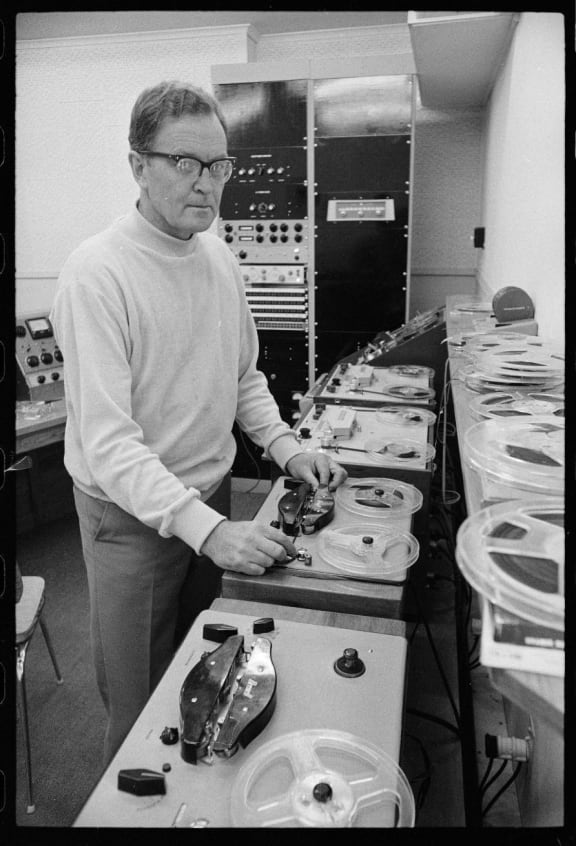
Composer Douglas Lilburn in the electronic music studio at Victoria University, Wellington, circa 30 August 1969. Photo: Alexander Turnbull Library
This episode, Practicalities, looks at aspects of the working life of Douglas Lilburn the composer. Writing music for film, theatre and radio, and the creative partnerships with Dame Ngaio Marsh, Richard Campion, Alistair Te Ariki Campbell, and the National Film Unit.
The programme also looks at early excursions into electronic music, from the music composed to accompany the radio dramas The Axe, and The Pitcher and the Well, through to the establishment of a pioneering Electronic Music Studio at Victoria University.
Martin Lodge talks about the tension between Douglas the academic and Douglas the creative artist; John Hopkins talks about the Symphony No. 3, Douglas's last major orchestral work; Helen Young talks about Douglas's role as advisor to broadcasting; and Douglas himself talks about the founding of Waiteata Press.
Rhythm and Movement (Weekly Review 346) - 1949
This short profiles the work of Gisa Taglicht. A pioneer of women's rhythmical gymnastics, Taglicht advocated the benefits of physical exercise for women. The National Film Unit's post-war Weekly Reviews became less overtly patriotic, and some, like this one, were unabashedly experimental. The score was composed by Douglas Lilburn.
Journey for Three - 1950
This National Film Unit dramatised doco was boosterism for postwar immigration to New Zealand. The film was released theatrically in the UK, and was scored by Douglas Lilburn.

